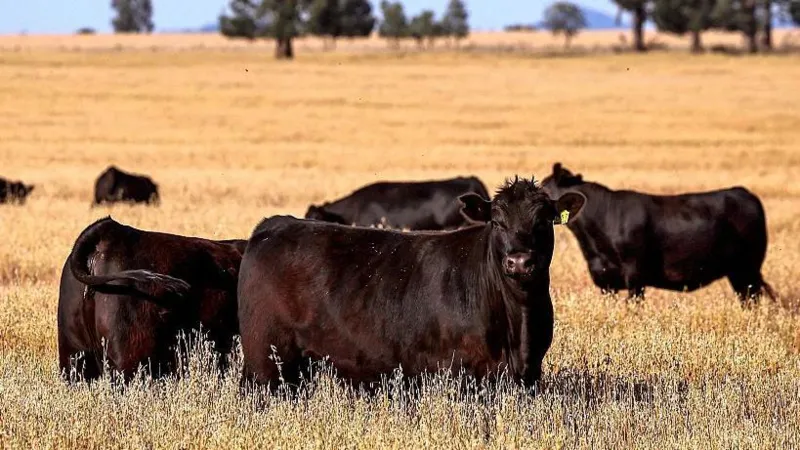Tunisia: President intensifies crackdown after low turnout
Despite President Kais Saied pursuing an increasingly undemocratic roadmap, the majority of Tunisians continue to be too occupied to protest. That could mean a low turnout for the second round of the election.

"I can hardly find flour to continue working, so who cares about parliamentary elections," Gamra Omrani, the owner of a popular sandwich shop in Tunis, told DW.
Omrani was not the only one who didn't cast their vote last Saturday. The parliamentary elections had a record-low turnout of just 11.2%.
"If we look at the voter turnout of just 11%, it is clear that Saied's base is slipping away," Simon Wolfgang Fuchs, a lecturer of Islamic and Middle East Studies at the University of Freiburg, Germany, told DW, comparing the number to "the 66% turnout at the parliamentary elections in 2014, and the majority of 70% that had voted for Saied in 2019."
Tunisian President Kais Saied has rejected national and international criticism of the low participation and highlighted that "the turnout is not measured through the first round, but through both rounds of voting."
Due to the low participation and the amended electoral law which saw individuals instead of parties run for office, only 21 out of 1,500 candidates were elected, while 133 candidates qualified for the second round, which will take place on January 19 next year.
Since the majority of Tunisia's parties, including the influential Islamist Ennahda Party, decided to boycott the elections, it is highly unlikely that the second round will see a higher turnout.
"What the core competencies of each chamber will be, and whether the lower house can enact any legislation in the interim remain complete unknowns," Monica Marks, an assistant Professor of Arabic Cross Road Studies at New York University Abu Dhabi, told DW.
In other words, at least until the final results are published by Tunisia's Election Authority on March 3, 2023, Kais Saied will be in charge of his political roadmap which he has repeatedly described as democratic, but is criticized as authoritarian by the opposition.
Tunisia, which was widely seen as democratic beacon of the Arab uprising in 2011, has been under Saied's rule since 2019. Following his power grab in July 2021, the elected parliament was first suspended and later dissolved, then-Prime Minister Hichem Mechichi was dismissed and replaced by the politically inexperienced geology professor Najla Bouden Romdhane.
Democratic institutions, like the Supreme Judicial Council, or the parliamentary speaker, were dissolved or suspended. Also, a change of the constitution consolidated the president's power, and a new electoral law has abandoned gender parity and party lists.
No democracy but a 'chilling message'
Meanwhile, former Prime Minister Ali Larayedh, who also served as vice-president of the then-largest parliamentary party Ennahda, was arrested and jailed on Monday.
According to the Reuters news agency, his lawyer confirmed that a judge at the Counter-Terrorism Judicial Pole had interrogated Larayedh for hours over allegedly siding with extremists in Syria after 2011, before sending him to prison.

"The imprisonment of Ali Larayedh is a failed, yet deliberate and systematic attempt to target opposition leaders, in light of the scandalous outcome of what was vainly called the legislative elections," Maher Medhioub, the counselor of dismissed parliamentary speaker Rachid Ghannouchi, and member of the Ennahda party, told DW.
Will Todman, a fellow at the Washington-based independent research organization Center for Strategic and International Studies, said that the move against Larayedh was "intended to send a chilling message to former opposition politicians who might seek to challenge Saied's rule."
"It continues a trend of Saied's gradual consolidation of power and his efforts to neutralize any opposition," he added.
Will resistance to Saied grow?
So far however, Saied, despite being under increasing pressure over the dire economic situation in Tunisia, has little to fear in terms of immediate protests, observers say.
"Saied's rule is increasingly vulnerable to anything that triggers public anger or the emergence of a hopeful alternative," Marks said.
However, such an alternative "hasn't happened and still looks unlikely," she added.
In the aftermath of the first round of the election, the Tunisian worker's union UGTT had criticized Saied's rule of power and threatened "to take appropriate measures and exert positive pressure, unless Saied engages in serious dialogue." But the union hasn't yet "tipped the weight decisively against Saied," Todman said.
The parties that boycotted the election, like Ennahda or the Free Destourian Party (PDL), have repeated their calls on Saied to step down.
"The question remains whether they view Saied's ongoing power grab as an existential threat that requires them to compromise for unity, or if their disunity continues to paralyze their power," Todman said.
Notwithstanding the growing frustration, there is still some support for the president. Tarek Saidi, for example, a barber near Tunis, hasn't lost his faith in Saied. "The president must be given the opportunity to set up institutions and embark on the necessary reforms after that," he told DW.
He's pinning his hopes on Saied rather than on a return of the former ruling parties that were accused of inefficiency and corruption. "They had enough chances while they were in power, but they were losers."







